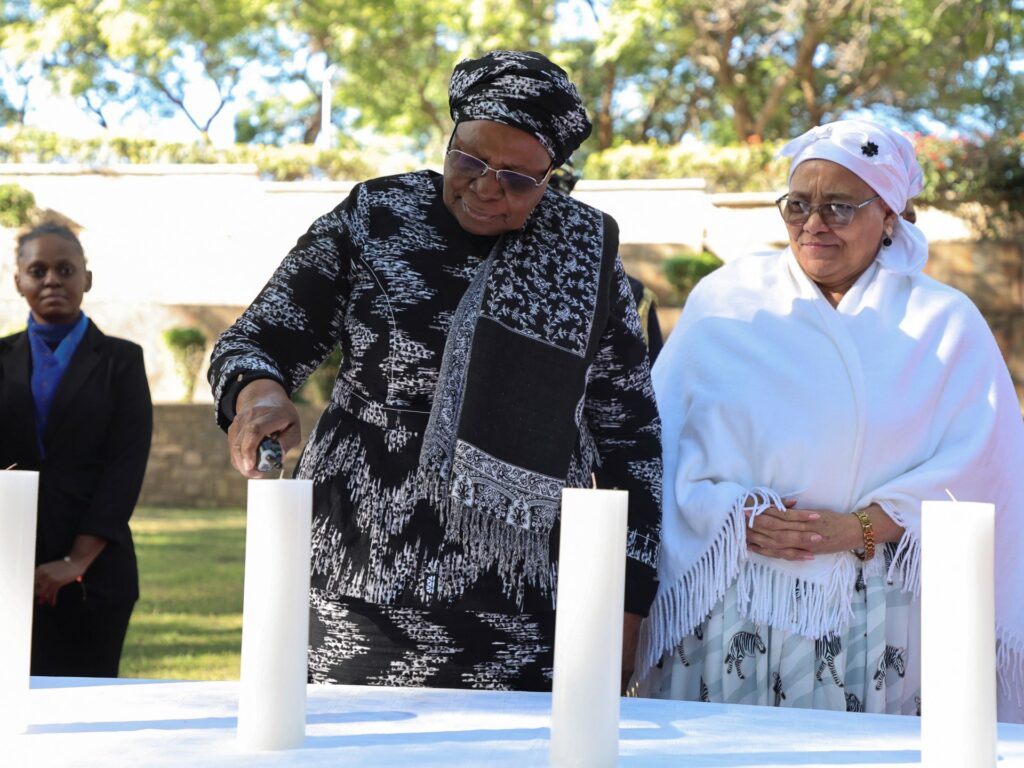Germany has acknowledged early 1900s genocide of Herero and Nama people, but reparations remain elusive.
Namibia has held its first Genocide Remembrance Day to commemorate tens of thousands of Herero and Nama people killed by German colonisers in the early 1900s, in what is widely considered the first genocide of the 20th century.
The southern African country’s president, Netumbo Nandi-Ndaitwah, speaking at the event Wednesday, called again for reparations for the at least 70,000 Indigenous people killed by German troops from 1904 to 1908.
Germany, which colonised Namibia from 1884 to 1915, previously acknowledged the genocide in 2021, but talks on reparations stretching back to 2013 have been fruitless.
“We should find a degree of comfort in the fact that the German government has agreed that the German troops committed a genocide against the … people of our land,” Nandi-Ndaitwah said at the ceremony held in the gardens of Namibia’s parliament.
“We must remain committed that as a nation, we shall soldier on until the ultimate conclusion is reached,” she said.
For its part, Germany released a statement earlier this week, reiterating that it “acknowledges Germany’s moral and political responsibility [for the killings] and emphasises the importance of reconciliation”.
Berlin has previously pledged more than one billion euros ($1bn) in development aid over 30 years to benefit the descendants of the two targeted tribes, while stressing the funding should not be seen as payment of reparations.
No agreement has been signed and Herero and Nama descendants have said they were excluded from the talks.
At Wednesday’s commemoration, candles were lit in honour of the victims and a minute of silence was followed by songs and speeches.
The memorial was attended by about 1,000 people, including the German ambassador to Namibia.
‘Extermination order’
The Herero tribe revolted against German colonisers in January 1904, with the smaller Nama tribe joining the next year.
The crackdown by German troops sent tens of thousands of people fleeing towards neighbouring Botswana.
Then, in October 1904, German General Lothar von Trotha, under the command of German leader Kaiser Wilhelm II, signed a notorious “extermination order” against the Herero.
“Within the German boundaries, every Herero, with or without a gun, with or without livestock, will be shot dead,” the order said.
Between 1904 and 1908, at least 60,000 Herero and 10,000 Nama people were killed, many at German-run concentration camps, although some estimates put the death toll higher.
Hundreds of Herero and Nama were also beheaded after being killed, with their skulls brought back to Germany for “scientific” experiments meant to prove racial superiority.
Since 2008, Namibian officials have demanded the bones be returned. Germany has complied, with ceremonial transfers in 2011 and 2018.
Speaking to Al Jazeera, Israel Kaunatjike, a Herero activist who spearheaded the initiative “No Amnesty on Genocide”, called it a “scandal” that no official memorial of the genocide has been held since Namibia gained independence from South Africa’s control in 1990.
“It is very, very important for us today to celebrate, to remember those who lost their lives,” said Kaunatjike, who noted May 28 marked the day in 1908 the concentration camps were closed in then-German South West Africa.
Kaunatjike added that any agreement that did not include reparations, and the return of Herero and Nama land still owned by descendants of German settlers, would be inadequate.
Read the full article here
